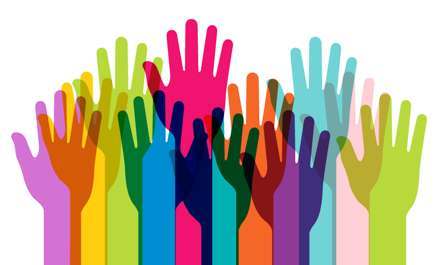By now we've all seen the relatively new research about the aversion very small children have to people who differ from them. "Stranger aversion" runs just as deeply in society, it seems, as its opposite "hospitality" runs in our faith.
Jared Diamond, in his brilliant study of traditional societies, The World Until Yesterday (New York: Penguin, 2012), observes that aversion to, suspicion and distrust of strangers is a common element in most traditional, small scale societies. Based on five decades of personal, in-depth research among small tribes as varied as the Dani (from the Baliem Valley of the New Guinea Highlands) and the !Kung (from Africa's Kalahari Desert), Diamond analyzes many aspects of their cultural norms, one of the most fascinating of which relates to a frequently observed aversion to strangers. Clearly Rousseau missed something pretty important on this score.
Diamond observes that "speakers from the Central !Kung dialect" refer to speakers of their own dialect (relatively speaking, a very small and localized society) as "true, good, honest, clean, not harmful" persons. They have a word specifically constructed for those who speak their same dialect. They also have a specific term for those who do not share their tribal dialect: "bad, strange, harmful." Diamond writes: "Like members of other small-scale societies, the !Kung are apprehensive of strangers. In practice, they succeed in finding some kin term to apply to almost every !Kung whom they meet. But if you meet a strange !Kung and can't discover any relationships... then he is a trespasser whom you should drive off or kill."
Of another tribal group, the Nuer, Diamond comments that strangers are either attacked, particularly if they belong to the rival tribe, the Dinka, or they are "merely despised (if they belong to any other type of people.)" From their perspective, there are really only three categories of humanity: their tribe (whom they trust and defend); the Dinka people (whom they hate and with whom they war); and all other people in the world (whom they despise and look down on).
During his extensive travels and research in New Guinea, Diamond has observed a similar phenomenon among traditional societies there. The concept, indeed, of friendship, in the sense of "people we like" and with whom we "share interests," is foreign. Instead one finds commonality on the basis of "whether one's group is politically allied with the other person's group." At one particularly self-revealing moment in Diamond's account, he says, referring to the concept of friendship: "I was astonished to realize that I had been making an incorrect assumption of supposed human universals that It hadn't even occurred to me to question."
Diamond's analysis of traditional societies provides valuable insights into our common humanity and fascinating ideas, for example about child-rearing, that we would do well to study, perhaps even imitate. But when it comes to stranger aversion, the resonance between the insularity and tribal-affiliations of traditional societies and certain aspects of modern culture and politics in the United States are disturbing.
I confess that there are times when I am surprised, for instance during an election cycle, of the similarities between bitterly divisive political ads in the three regions where I have roots: Kentucky; Georgia; and Texas. I'm sure the same can be said of political ads in virtually every state of the Union, but I know from personal experience that in all three of these "markets" I have seen political ads that reassure the viewer (often in a deep, well-modulated, but "folksy" voice): "The people of [fill in the name of your local tribe] are hard-working, family-minded people. We use our common sense. We go to church on Sunday, we love and care for our children and our elders, and still value the things that matter." By implication, people from other tribes and regions are lazy, irreligious, lacking in common sense, don't love their families, don't care for children or old folks, and have rotten values. There's a version of "thinking local" that is really just an expression of tribalism, in other words, and it is neither very attractive, nor productive, nor conducive to our basic humanity.
Reading Diamond's study, I reflected anew on one of the most formative books of the twentieth century, Martin Buber's classic I and Thou. This remarkable book shaped the thinking of generations of theologians, philosophers, cultural students and political thinkers, its terminology entering the mainstream of our speech. Buber challenges us to move beyond making "objects" of other people, projecting onto them our assumptions and stereotypes or simply using them to promote our own agendas, to see and hear and understand other persons as living subjects, as "thou" in relation to "I." By so doing, we reflect the fundamental "I and Thou" relationship between God and each of us.
There seems to be an act of intellectual empathy that precedes and makes possible the emotional empathy needed to transcend a tribal aversion to strangers. Once we can fathom that every other person, however different, however distant, is also made in God's image, indeed, that the image of God is most fully reflected in our being in relationship, then we are empowered to imagine what it means to be both human and different. There's no real virtue in loving those who are just like us and who serve our interests, at least according to Jesus of Nazareth; virtue lies in loving those who are different, even potentially troublesome. Maybe Jesus knew a thing or two about overcoming the destructive power of tribes.

